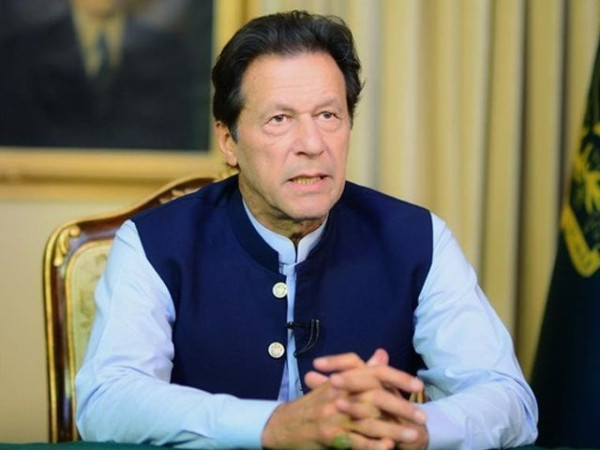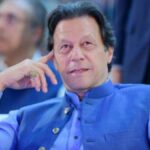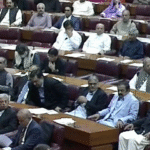Here’s a long and informative article on Imran Khan’s victory in the 2018 general elections of Pakistan:
Imran Khan’s
Victory in the 2018 Pakistan
The 2018 general elections in Pakistan marked a significant turning point in the country’s political history. After decades of political dominance by the Pakistan Muslim League-Nawaz (PML-N) and the Pakistan Peoples Party (PPP), a new player emerged victorious: Imran Khan, the charismatic former cricketer and leader of the Pakistan Tehreek-e-Insaf (PTI). Khan’s win was not just a change in leadership; it symbolized a dramatic shift in the hopes, frustrations, and aspirations of millions of Pakistanis.
Background of Imran Khan and PTI
Imran Khan, known worldwide for leading Pakistan to its only Cricket World Cup victory in 1992, entered politics in 1996 by founding the PTI. For years, the party struggled to gain political traction. In the 1997 and 2002 elections, PTI barely made an impact. However, Khan remained determined, gradually building his reputation as an anti-corruption crusader and a man of integrity.
The real turning point came in the 2011 PTI rally in Lahore, which drew hundreds of thousands of supporters. This marked the beginning of PTI’s rise as a serious political force. The party campaigned strongly on promises of ending corruption, reforming governance, improving education and healthcare, and creating a “Naya Pakistan” (New Pakistan).
The 2018 Election Campaign
The lead-up to the 2018 elections was highly charged and controversial. Several key factors played into Imran Khan’s eventual victory:
- Anti-Corruption Sentiment: The PML-N was severely weakened after its leader, Nawaz Sharif, was disqualified by the Supreme Court in 2017 following the Panama Papers revelations. His subsequent arrest for corruption charges just before the elections damaged the party’s image.
- PTI’s Social Media Strategy: PTI effectively used social media to connect with the youth, urban middle class, and overseas Pakistanis. The party’s online campaigns were energetic and widespread.
- Charismatic Leadership: Khan’s image as a national hero and his straightforward rhetoric resonated with a public tired of traditional politics.
- Support from Establishment: Many analysts believe that parts of the military and judiciary favored PTI, although this remains a contested and politically sensitive topic.
- Manifesto and Public Appeal: PTI promised a welfare state modeled after Medina, job creation, housing projects, and a crackdown on elite privilege.
Election Results
The general elections were held on July 25, 2018. PTI emerged as the largest party, winning 116 out of 272 directly elected National Assembly seats. After forming alliances with independent candidates and smaller parties, PTI secured a majority and was able to form the government.
In comparison:
- PML-N won 64 seats.
- PPP came in third with 43 seats.
Imran Khan officially became Prime Minister of Pakistan on August 18, 2018.
Immediate Reactions
The victory was met with mixed reactions:
- Supporters celebrated it as a fresh start and an end to dynastic politics.
- Opponents, including PML-N and PPP, alleged election rigging and bias from the establishment.
- International observers, including the European Union Election Observation Mission, noted improvements in electoral processes but raised concerns over pre-poll fairness and media censorship.
Imran Khan’s Vision for Naya Pakistan
Upon taking office, Khan promised to:
- Build 5 million homes for the poor.
- Create 10 million jobs.
- Reform the education and health sectors.
- Fight corruption and bring back looted wealth.
- Improve ties with neighbors, especially India and Afghanistan.
- Strengthen tax collection and increase exports.
He emphasized austerity by reducing government expenses, including turning the Prime Minister’s house into a university and using only a small staff.
Challenges Faced
Despite high hopes, PTI’s government faced major challenges:
- Economic Crisis: Pakistan’s economy was under pressure due to low foreign reserves, a large trade deficit, and rising inflation.
- IMF Bailout: Khan, who had long criticized IMF loans, eventually had to seek a bailout in 2019.
- COVID-19 Pandemic: Like the rest of the world, Pakistan was hit hard by the pandemic, affecting economic and social life.
- Political Opposition: The united opposition, under the Pakistan Democratic Movement (PDM), strongly criticized PTI’s governance.
Conclusion
Imran Khan’s rise to power in 2018 was the result of two decades of persistent struggle and the desire of the Pakistani people for genuine change. While his tenure has been met with both praise and criticism, his election win stands as a moment of historic political transformation in Pakistan. Whether he fully delivered on the promises of “Naya Pakistan” remains a subject of debate, but his win in 2018 undeniably altered the political landscape of the country.


